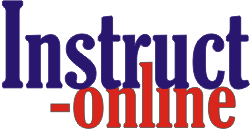
 Phone
(319) 626-2302
Phone
(319) 626-2302
Catalog Number : ngd1919
Title : Critical Access Hospital Changes & Top Problematic Standards
Speaker : Sue Dill
Webplay Recording Date : 7-25-2014
Webplay Price : $ 125 for two weeks viewing
Webinar Overview: This is a must attend for any critical access hospital. It will discuss recent changes and survey hot spots. CMS is now issuing a quarterly deficiency memo that summarizes top problematic standards for hospitals including critical access hospitals. It will discuss a number of recent CMS memos that every hospital should be aware. It will discuss MRI safety, preventing an OR fire and restraint and seclusion use in a CAH. Target Audience:
CEO's, COO's, Chief Nursing Officer, Nurses, Quality Managers, Consumer Advocate, Risk Managers, Hospital Legal Counsel, Compliance Officers, Joint Commission Liaison, Director of Health Information, Case Managers, Chief Medical Officer, Nurse Educator, Pharmacist, Social Workers, Discharge Planners, PI Coordinator, Joint Commission Coordinator, Patient Safety Officer, Patient Safety Committee, Nurse Managers, Outpatient Director, Director of Rehab, Dieticians, Infection Control Preventionist, Medication Management Team, Anesthesia and Surgery staff, PACU Director, Policy and Procedures Committee, Respiratory Therapy Director, Director of Radiology, Radiology staff, ethics committee, policy committee, infection control committee members, Infection Preventionist, Pharmacist, Pharmacy Director, and Staff Nurses and anyone who is a direct patient care giver Webinar Objectives:
A few of the topics to be discussed:
Recent memos and standard changes to the CMS CAH CoPs (Conditions of Participation) Preventing and Managing an OR Fire Recommendations for hospitals to implement regarding restraint and seclusion to improve patient safety
• Contact Hours:
Completion of offering required prior to awarding certificate.
Refund Policy:
Full tuition is refunded immediately on request if the participant has not been sent the program materials and instructions. Once the instructions (including access codes) have been sent, a full refund will be issued only after the program runs and it is verified that the participant did not access the program
.